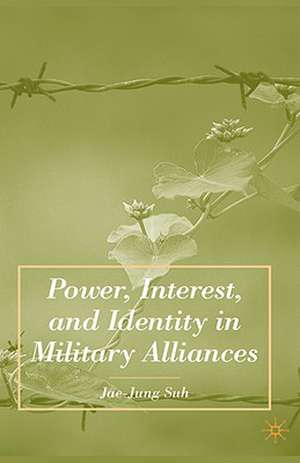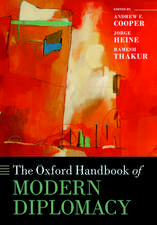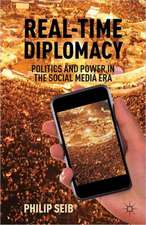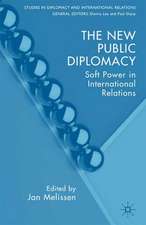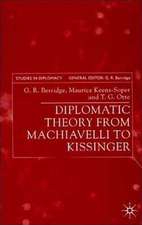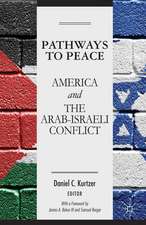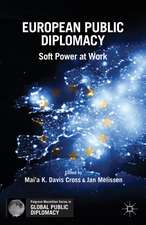Power, Interest, and Identity in Military Alliances
Autor J. Suhen Limba Engleză Hardback – 24 iul 2007
| Toate formatele și edițiile | Preț | Express |
|---|---|---|
| Paperback (1) | 385.47 lei 6-8 săpt. | |
| Palgrave Macmillan US – 24 iul 2007 | 385.47 lei 6-8 săpt. | |
| Hardback (1) | 392.60 lei 6-8 săpt. | |
| Palgrave Macmillan US – 24 iul 2007 | 392.60 lei 6-8 săpt. |
Preț: 392.60 lei
Nou
Puncte Express: 589
Preț estimativ în valută:
75.13€ • 78.60$ • 62.41£
75.13€ • 78.60$ • 62.41£
Carte tipărită la comandă
Livrare economică 03-17 aprilie
Preluare comenzi: 021 569.72.76
Specificații
ISBN-13: 9781403979285
ISBN-10: 1403979286
Pagini: 286
Ilustrații: XV, 286 p. 1 illus.
Dimensiuni: 140 x 216 x 28 mm
Greutate: 0.52 kg
Ediția:2007
Editura: Palgrave Macmillan US
Colecția Palgrave Macmillan
Locul publicării:New York, United States
ISBN-10: 1403979286
Pagini: 286
Ilustrații: XV, 286 p. 1 illus.
Dimensiuni: 140 x 216 x 28 mm
Greutate: 0.52 kg
Ediția:2007
Editura: Palgrave Macmillan US
Colecția Palgrave Macmillan
Locul publicării:New York, United States
Cuprins
Power, Interest, and Identity in International Politics: The Military Alliance between the United States and Republic of Korea Power and Alliance: Assessing Military Balance in Korea Alliance and Interest Alliance and Identity End of the Cold War, Beginning of Alliance Persistence Persistence and Termination of Military Alliances: NATO, the Soviet Union-Egypt, and the United States-Iran The Past and Future of Alliances: Institutionalization in World Politics
Recenzii
"This book takes up what has been left by previous scholarship and makes original contributions to the current debate on the subject. . .Bridging case study and theory building and integrating diverse international relations theories, Power, Interest, and Identity in Military Alliances is an outstanding example of historical institutionalism applied to the field of international relations. The book is a welcome scholarly work, both for those who wish to learn about the U.S.-Korea security alliance and for those who engage in theoretical debates in international politics." - Youngshik D. Bong, The Journal of Asian Studies"The theoretical sophistication of this book sets a new standard for all students of military alliances in general and of the US-Korea alliance in specific. Based on meticulous empirical research Suh's nuanced analysis develops a compelling case forthe political significance of alliances. Beyond the balance of power, alliance politics trigger processes that constructthe identities of allies and adversaries. Suh's elegant analysis explains how and why. This important book is required reading for all scholars interested in national security and international relations theory." - Peter J. Katzenstein, Walter S. Carpenter, Jr. Professor of International Studies, Cornell University "How does North Korea, a castaway from the wreckage of communism, with a ruined economy and a Lilliputian military budget in comparison to both the United States and South Korea, justify the persistence of the US-South Korean alliance? In this thoughtful and courageous book, J.J. Suh explains how habits of the mind and long-standing institutions lock us in, where "worst-case scenarios" often substitute for analyses of the enemy that remains as imagined as it is real. This is one of the most sophisticated and original accounts of the security dilemma in East Asia and it will make an important contribution to the way we think about military alliances in general." - Meredith Woo, Professor of Political Science, University of Michigan
Notă biografică
JAE-JUNG SUH is Assistant Professor of Government, Cornell University, USA.
